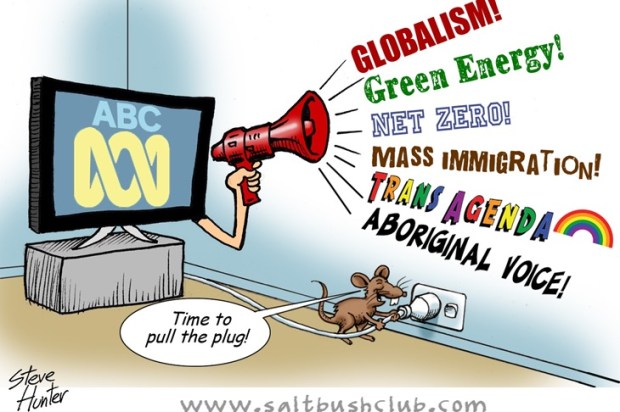When Socrates was tried and executed by his fellow Athenians, his speech was found to be outside the acceptable realm tolerated by his polis’ democracy. He was found guilty of heresy. While the Athenians had significant freedom of speech, it was not absolute, it was freedom both granted and taken away by the city state. After losing the Peloponnesian war, the Athenians searched for someone or something to blame. Socrates challenging of cultural norms through socratic questioning was deemed unacceptable and as a result Socrates was executed by being required to drink hemlock.
Chris Berg explains in the first chapter of his book, In Defence of Freedom of Speech” the difference between freedom of speech that is granted by the State (such as in Ancient Athens) and freedom of speech that is a right (Such as in Ancient Rome). The difference is significant, in Ancient Athens freedom of speech was only permissible where it was sanctioned by the Athenian democracy. In theory at least, the situation in Rome was different. Freedom of speech was not something to be taken away by the Roman Senate it was a right of the individual. It wasn’t a gift bestowed on the individual by the Senate, it was a right.
We now live in age of rights, so much so, that the term has lost much of its meaning. However, in our society, free speech is generally assumed to be right, not a gift by given to us by a benevolent state. Whether or not this is legally true, is not the point. Most Australians assume their right to free speech is guaranteed by law, in the same way Americans are guaranteed free speech by the First Amendment under their constitution.
I reflected on this when I received a reply from an ALP Senator in response to a petition I signed supporting Bob Day’s proposed private member’s bill aimed at amending 18c. The response I received included this argument: “Labor is a staunch supporter of free speech – but free speech is not and never could be absolute. Freedom of speech is a value that, like many democratic values, must always be counterbalanced against competing values. In Australia, as in all western democracies, there are numerous ways in which freedom of speech has always been constrained to benefit our community.”
This is an increasingly common argument, and notice that free speech is not a right, but a value. A value that can be ignored or pushed aside. To the extent that Labor, the Greens and many in the Coalition support free speech at all, it’s really state sanctioned speech – you as an individual don’t have a right to speech, it’s a democratic value that our rulers support when it doesn’t conflict with some other value they consider more important, such as social cohesion.
Free speech that’s really state sanctioned speech is no free speech at all. When those advocating restrictions on free speech say, ‘that they support free speech but…’ we should challenge them on the use of the term free speech. They have appropriated the term for their own purpose and distorted its meaning beyond recognition. They have a right to argue against free speech, or for restricted speech, many have before them, but they have no right to call it free speech. The only people who should use that term are those willing to go the full Voltaire.
As Brendan O’Neill recently pointed out, hate speech laws are a return to blasphemy laws. Except now instead of offending Christ, it’s now a crime to offend minorities. We abolished blasphemy laws because society deemed them to be out dated and a violation of both free speech and of freedom of religion. Did blasphemy suddenly because inoffensive to millions of christians? No it didn’t, but we did then, as we should now, accept the fact that people have the right to be offensive. The way to handle these issues is through discussion and debate, not courtrooms, human rights investigations or secret trials.
Advocates for the Human Rights Commission will say that it helps mediate between parties and prevents these cases from going to court. Socrates too was given the chance to apologise. He could have saved his own life, but the stubborn old man refused and instead chose the hemlock. In Australia offensive people only face the choice between aplogising and begging for mercy, or two face ruinous litigation. I doubt I would have Socrates’ bravery.
Senator David Leyonhjelm recently highlighted with his complaint under 18c — there is little or no protection for white males or christians against offense. The State is selective in its control. Next time someone says something offensive about Christianity or against white males you won’t find any human right commissioners calling for complaints as recently occurred in relation to one of Bill Leaks’ cartoons.
The answer to this hypocrisy is not to pulp every edition of the Guardian or have the police investigate the Twitterati, but to recognise that individuals have a right to free speech. This includes the right to be offensive. George Brandis was right when he said, “People have a right to be a bigot.” Even those who for the Guardian or are on Twitter.
Justin Campbell is on the executive committee of Liberty Works.
Got something to add? Join the discussion and comment below.
Get 10 issues for just $10
Subscribe to The Spectator Australia today for the next 10 magazine issues, plus full online access, for just $10.
























Comments
Don't miss out
Join the conversation with other Spectator Australia readers. Subscribe to leave a comment.
SUBSCRIBEAlready a subscriber? Log in